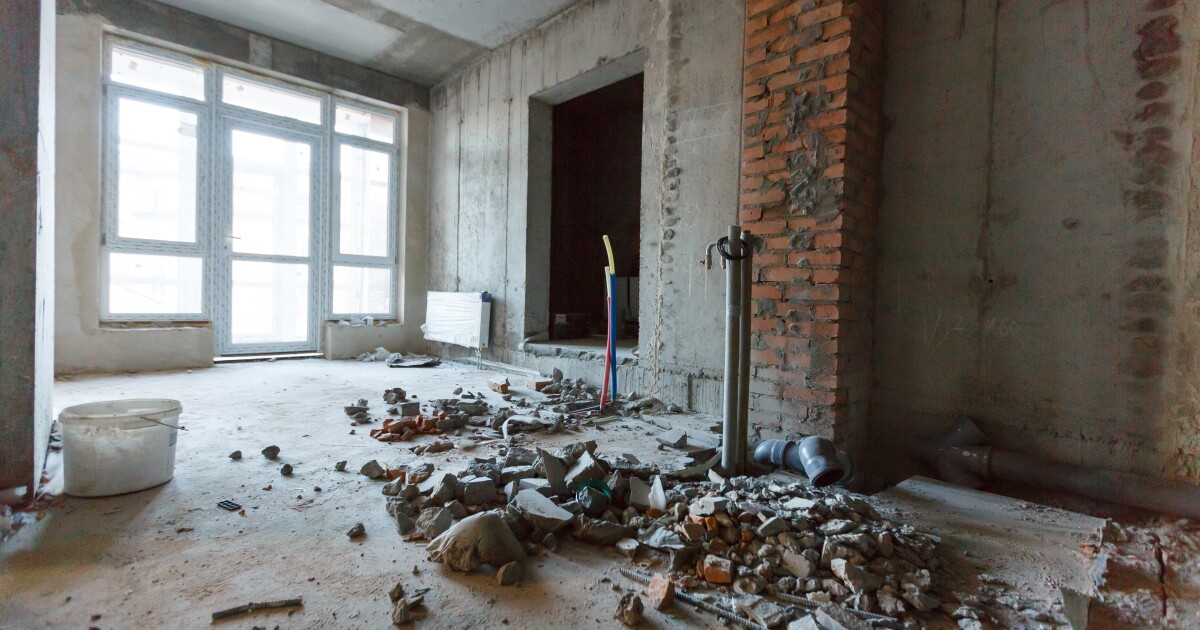
The Biden administration provided updates to its housing supply action plan on Friday to emphasize its support of converting vacant commercial properties to affordable residential housing.
The White House published guidance that highlights 20 different programs offered through the Department of Housing and Urban Development and five other agencies to help finance such conversions through low-interest loans, guarantees, grants and tax credits. Other agencies involved include the Department of Transportation and General Services Administration.
The new guidance included an announcement of two initiatives from the DOT with over $35 billion in financing at below-market rates for redevelopment near public transportation, including commercial-to-residential projects. The department also issued details on how transit agencies could offload unused properties at no cost to local governments, nonprofit groups and developers involved in the creation of affordable housing.
HUD, meanwhile, said it would increase its efforts to support communities and developers seeking access to funding for commercial-to-residential projects. Local governments can apply for low-cost loan guarantees up to five times the amount already available to them through community-development block grants.
The General Services Administration also said it would highlight and promote the availability of surplus federal properties that could be repurposed into affordable housing through its good neighbor program.
In conjunction with Friday's update, the Biden administration said it would conduct training workshops this fall for government officials, developers, property owners and other stakeholders in housing and lending industries on how they could benefit from the plans.
The White House's announcement comes as the financial industry continues to closely eye risk held by the commercial real estate sector. Following the collapse of regional banks this spring, analysts this year frequently noted the potential destabilization CRE posed to institutions with high volumes of financing on their balance sheets and the likely spillover effect defaults could bring to the U.S. economy.
Office buildings, in particular, are being closely watched with fewer workers returning to in-person work. Many companies are reducing their physical presence in response, leaving vacancy rates still well above pre-pandemic levels.
According to a report released by the White House's Office of Economic Advisors, office vacancies nationwide reached a 30-year high of 18.2% in the second quarter this year. But the process of converting commercial properties into housing faces many financial and zoning hurdles, the office noted.
Still, several cities, including New York and San Francisco and Boston, are looking into programs this year to facilitate and encourage more commercial-to-residential conversions.
Following the announcement, the Mortgage Bankers Association voiced its support for the Biden administration's efforts.
"MBA shares the Biden administration's commitment to increasing housing supply and appreciates its willingness to engage with us," said the trade group's President and CEO Bob Broeksmit in a press release.
"We encourage state and local governments to ensure zoning laws, tax credits and subsidies are aligned to take full advantage of these programs," he added.
The development of more affordable homes, including both single-family and multifamily units, is a cornerstone of the president's housing supply action plan meant to bolster inventory and increase affordability. Components of the plan include proposals to ease zoning restrictions and boost funding for a wider range of affordable housing, such as manufactured homes and accessory dwelling units.
Through the plans, the administration is also actively seeking to increase the use of energy-efficient solutions to tackle ongoing climate risk.



